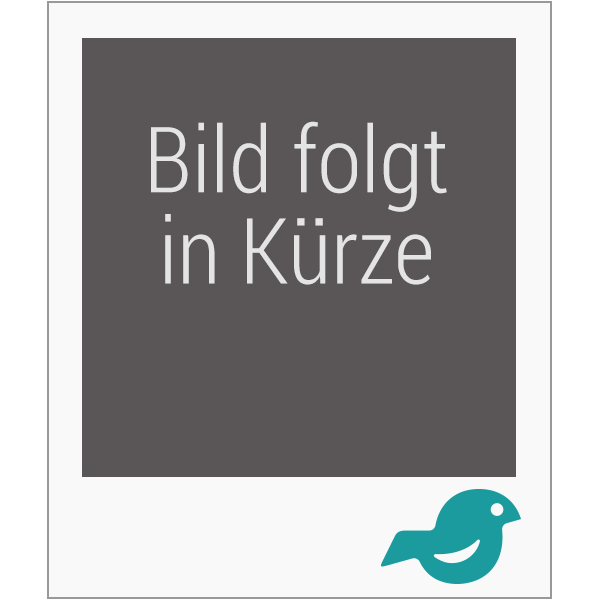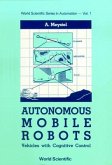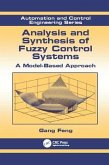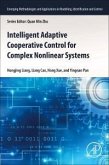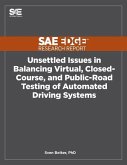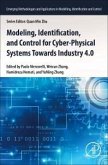- Broschiertes Buch
- Merkliste
- Auf die Merkliste
- Bewerten Bewerten
- Teilen
- Produkt teilen
- Produkterinnerung
- Produkterinnerung
This book is based on the authors' recent research results on formation control problems, including time-varying formation, communication delays, fault tolerant formation, for multiple UAV systems with highly nonlinear and coupled, parameters uncertainties, and external disturbances.
Andere Kunden interessierten sich auch für
![Autonomous Mobile Robots: Vehicles with Cognitive Control Autonomous Mobile Robots: Vehicles with Cognitive Control]() Alex MeystelAutonomous Mobile Robots: Vehicles with Cognitive Control72,99 €
Alex MeystelAutonomous Mobile Robots: Vehicles with Cognitive Control72,99 €![Analysis and Synthesis of Fuzzy Control Systems Analysis and Synthesis of Fuzzy Control Systems]() Gang FengAnalysis and Synthesis of Fuzzy Control Systems72,99 €
Gang FengAnalysis and Synthesis of Fuzzy Control Systems72,99 €![To Be a Machine To Be a Machine]() Mark O'ConnellTo Be a Machine20,99 €
Mark O'ConnellTo Be a Machine20,99 €![Intelligent Adaptive Cooperative Control for Complex Nonlinear Systems Intelligent Adaptive Cooperative Control for Complex Nonlinear Systems]() Hongjing LiangIntelligent Adaptive Cooperative Control for Complex Nonlinear Systems190,99 €
Hongjing LiangIntelligent Adaptive Cooperative Control for Complex Nonlinear Systems190,99 €![Unsettled Issues in Balancing Virtual, Closed-Course, and Public-Road Testing of Automated Driving Systems Unsettled Issues in Balancing Virtual, Closed-Course, and Public-Road Testing of Automated Driving Systems]() Sven BeikerUnsettled Issues in Balancing Virtual, Closed-Course, and Public-Road Testing of Automated Driving Systems131,99 €
Sven BeikerUnsettled Issues in Balancing Virtual, Closed-Course, and Public-Road Testing of Automated Driving Systems131,99 €![Modeling, Identification, and Control for Cyber- Physical Systems Towards Industry 4.0 Modeling, Identification, and Control for Cyber- Physical Systems Towards Industry 4.0]() Modeling, Identification, and Control for Cyber- Physical Systems Towards Industry 4.0163,99 €
Modeling, Identification, and Control for Cyber- Physical Systems Towards Industry 4.0163,99 €![Smart and Intelligent Systems Smart and Intelligent Systems]() Smart and Intelligent Systems71,99 €
Smart and Intelligent Systems71,99 €-
-
This book is based on the authors' recent research results on formation control problems, including time-varying formation, communication delays, fault tolerant formation, for multiple UAV systems with highly nonlinear and coupled, parameters uncertainties, and external disturbances.
Hinweis: Dieser Artikel kann nur an eine deutsche Lieferadresse ausgeliefert werden.
Hinweis: Dieser Artikel kann nur an eine deutsche Lieferadresse ausgeliefert werden.
Produktdetails
- Produktdetails
- Verlag: Taylor & Francis Ltd (Sales)
- Seitenzahl: 130
- Erscheinungstermin: 8. Oktober 2024
- Englisch
- Abmessung: 234mm x 156mm x 8mm
- Gewicht: 213g
- ISBN-13: 9781032150246
- ISBN-10: 1032150246
- Artikelnr.: 71579539
- Herstellerkennzeichnung
- Libri GmbH
- Europaallee 1
- 36244 Bad Hersfeld
- gpsr@libri.de
- Verlag: Taylor & Francis Ltd (Sales)
- Seitenzahl: 130
- Erscheinungstermin: 8. Oktober 2024
- Englisch
- Abmessung: 234mm x 156mm x 8mm
- Gewicht: 213g
- ISBN-13: 9781032150246
- ISBN-10: 1032150246
- Artikelnr.: 71579539
- Herstellerkennzeichnung
- Libri GmbH
- Europaallee 1
- 36244 Bad Hersfeld
- gpsr@libri.de
Hao Liu received the B.E. degree in control science and engineering from the Northwestern Polytechnical University, Xi'an, China, in 2008, the Ph.D. degree in automatic control from the Tsinghua University, Beijing, China, in 2013. In 2012, he was a visiting student in the Research School of Engineering, Australian National University. From 2013 to 2020, he has been with the School of Astronautics, Beihang University, Beijing, China, where he is currently an Associate Professor. Since 2020, he has been with the Institute of Artificial Intelligence, Beihang University, Beijing, China. From 2017 to 2018, he was a visiting scholar at the University of Texas at Arlington Research Institute, Fort Worth, USA. He received the best paper award on IEEE ICCA 2018. His research interests include formation control, reinforcement learning, robust control, nonlinear control, unmanned aerial vehicles, unmanned underwater vehicles, and multi-agent systems. He serves as an associate editor of Transactions of the Institute of Measurement and Control, and Advanced Control for Applications: Engineering and Industrial Systems. Deyuan Liu received the B.E. degree in automation from the Beijing University of Chemical Technology, Beijing, China, in 2015, the Ph.D. degree in flight vehicle design from the School of Astronautics, Beihang University, Beijing, China, in 2021. He is currently a Postdoctoral Fellow of Zhuoyue Program in control theory and control engineering with Beihang University, Beijing, China. His current research interests include multi-agent systems, robust control, nonlinear control, formation control, and tail-sitter aircraft control. Yan Wan is currently a Distinguished University Professor in the Electrical Engineering Department at the University of Texas at Arlington. She received her Ph.D. degree in Electrical Engineering from Washington State University in 2009 and then did postdoctoral training at the University of California, Santa Barbara. Her research interests lie in the modeling, evaluation, and control of large-scale dynamical networks, cyber-physical systems, stochastic networks, and their applications to smart grids, urban aerial mobility, autonomous driving, robot networking, and air traffic management. She is an appointed member of the Board of Governors of the IEEE Control Systems Society (CSS) and serves in the Conference Editorial Board and Technology Conference Editorial Board. She is also a technical committee member of AIAA Intelligent Systems, IEEE CSS Nonlinear Systems and Control, and IEEE CSS Networks and Communication Systems. Frank L. Lewis is a Member of National Academy of Inventors, a Fellow of IEEE/IFAC/U.K/Institute of Measurement & Control, PE Texas, U.K. Chartered Engineer. He is a UTA Distinguished Scholar Professor, UTA Distinguished Teaching Professor, and Moncrief-O'Donnell Chair at the University of Texas at Arlington Research Institute. He received the bachelor's degree in physics/EE in 1971 and the M.S.E.E. degree in 1971 from Rice University, Houston, TX, USA, the M.S. degree in aeronautical engineering in 1977 from the University of West Florida, Pensacola, FL, USA, and the Ph.D. degree in electrical engineering in 1981 from the Georgia Institute of Technology, Atlanta, GA, USA. He works in feedback control, intelligent systems, cooperative control systems, and nonlinear systems. He is author of 7 U.S. patents, numerous journal special issues, journal papers, and 20 books, including Optimal Control, Aircraft Control, Optimal Estimation, and Robot Manipulator Control which are used as university textbooks worldwide. He received the Fulbright Research Award, NSF Research Initiation Grant, ASEE Terman Award, Int. Neural Network Soc. Gabor Award, U.K. Inst Measurement & Control Honeywell Field Engineering Medal, IEEE Computational Intelligence Society Neural Networks Pioneer Award, AIAA Intelligent Systems Award. Received Outstanding Service Award from Dallas IEEE Section, selected as Engineer of the year by Ft. Worth IEEE Section. Was listed in Ft. Worth Business Press Top 200 Leaders in Manufacturing. Texas Regents Outstanding Teaching Award 2013. Kimon P. Valavanis received the Diploma degree in electrical and electronic engineering from the National Technical University of Athens, Athens, Greece, in 1981, and the M.Sc. degree in electrical engineering and the Ph.D. degree in computer and systems engineering from Rensselaer Polytechnic Institute, Troy, NY, USA, in 1984 and 1986, respectively. He is currently a Professor and the Chair of the Electrical and Computer Engineering Department, and also the Acting Chair of the Computer Science Department, University of Denver, Denver, CO, USA. His current research interests include unmanned systems and distributed intelligence systems.
1. Introduction and Background
2. Robust Formation Control for Multiple Quadrotors with Nonlinearities
3. Robust Formation Trajectory Tracking Control for Multiple Quadrotors
with Communication Delays
4. Robust Formation Tracking Control for Multiple Quadrotors Subject to
Switching Topologies
5. Robust Time-Varying Formation Control for Tail-Sitters in Flight Mode
Transitions
6. Robust Fault-Tolerant Formation Control for Tail-Sitters in Aggressive
Flight Mode Transitions
Bibliography
2. Robust Formation Control for Multiple Quadrotors with Nonlinearities
3. Robust Formation Trajectory Tracking Control for Multiple Quadrotors
with Communication Delays
4. Robust Formation Tracking Control for Multiple Quadrotors Subject to
Switching Topologies
5. Robust Time-Varying Formation Control for Tail-Sitters in Flight Mode
Transitions
6. Robust Fault-Tolerant Formation Control for Tail-Sitters in Aggressive
Flight Mode Transitions
Bibliography
1. Introduction and Background
2. Robust Formation Control for Multiple Quadrotors with Nonlinearities
3. Robust Formation Trajectory Tracking Control for Multiple Quadrotors with Communication Delays
4. Robust Formation Tracking Control for Multiple Quadrotors Subject to Switching Topologies
5. Robust Time-Varying Formation Control for Tail-Sitters in Flight Mode Transitions
6. Robust Fault-Tolerant Formation Control for Tail-Sitters in Aggressive Flight Mode Transitions
Bibliography
2. Robust Formation Control for Multiple Quadrotors with Nonlinearities
3. Robust Formation Trajectory Tracking Control for Multiple Quadrotors with Communication Delays
4. Robust Formation Tracking Control for Multiple Quadrotors Subject to Switching Topologies
5. Robust Time-Varying Formation Control for Tail-Sitters in Flight Mode Transitions
6. Robust Fault-Tolerant Formation Control for Tail-Sitters in Aggressive Flight Mode Transitions
Bibliography
1. Introduction and Background
2. Robust Formation Control for Multiple Quadrotors with Nonlinearities
3. Robust Formation Trajectory Tracking Control for Multiple Quadrotors
with Communication Delays
4. Robust Formation Tracking Control for Multiple Quadrotors Subject to
Switching Topologies
5. Robust Time-Varying Formation Control for Tail-Sitters in Flight Mode
Transitions
6. Robust Fault-Tolerant Formation Control for Tail-Sitters in Aggressive
Flight Mode Transitions
Bibliography
2. Robust Formation Control for Multiple Quadrotors with Nonlinearities
3. Robust Formation Trajectory Tracking Control for Multiple Quadrotors
with Communication Delays
4. Robust Formation Tracking Control for Multiple Quadrotors Subject to
Switching Topologies
5. Robust Time-Varying Formation Control for Tail-Sitters in Flight Mode
Transitions
6. Robust Fault-Tolerant Formation Control for Tail-Sitters in Aggressive
Flight Mode Transitions
Bibliography
1. Introduction and Background
2. Robust Formation Control for Multiple Quadrotors with Nonlinearities
3. Robust Formation Trajectory Tracking Control for Multiple Quadrotors with Communication Delays
4. Robust Formation Tracking Control for Multiple Quadrotors Subject to Switching Topologies
5. Robust Time-Varying Formation Control for Tail-Sitters in Flight Mode Transitions
6. Robust Fault-Tolerant Formation Control for Tail-Sitters in Aggressive Flight Mode Transitions
Bibliography
2. Robust Formation Control for Multiple Quadrotors with Nonlinearities
3. Robust Formation Trajectory Tracking Control for Multiple Quadrotors with Communication Delays
4. Robust Formation Tracking Control for Multiple Quadrotors Subject to Switching Topologies
5. Robust Time-Varying Formation Control for Tail-Sitters in Flight Mode Transitions
6. Robust Fault-Tolerant Formation Control for Tail-Sitters in Aggressive Flight Mode Transitions
Bibliography

